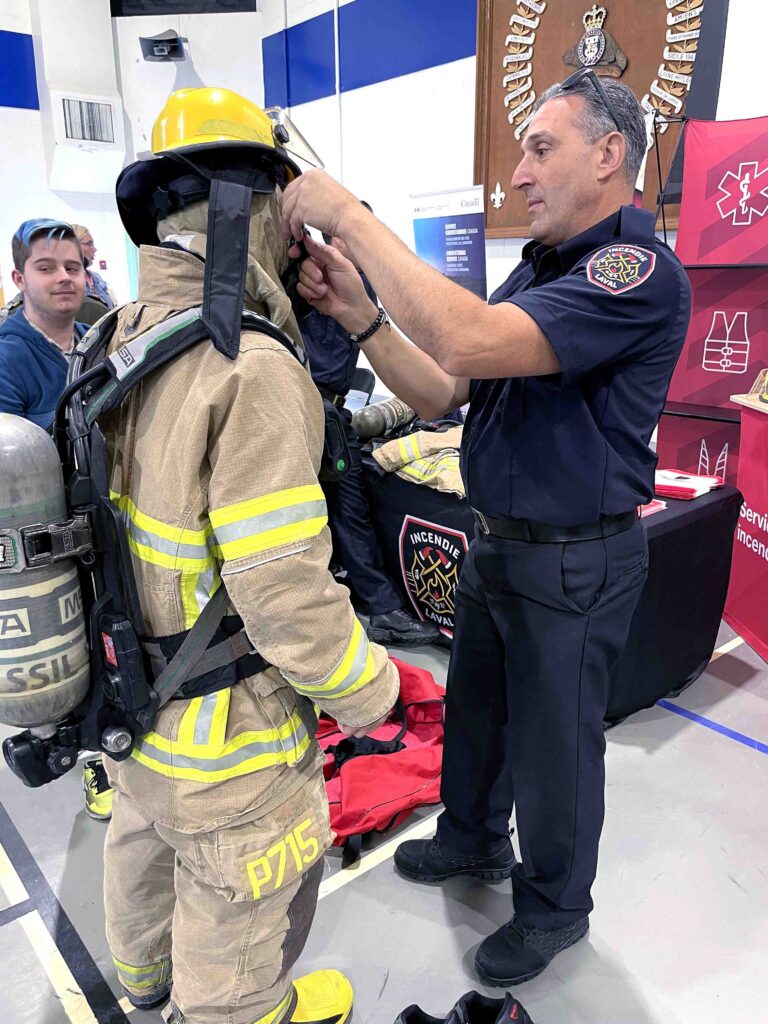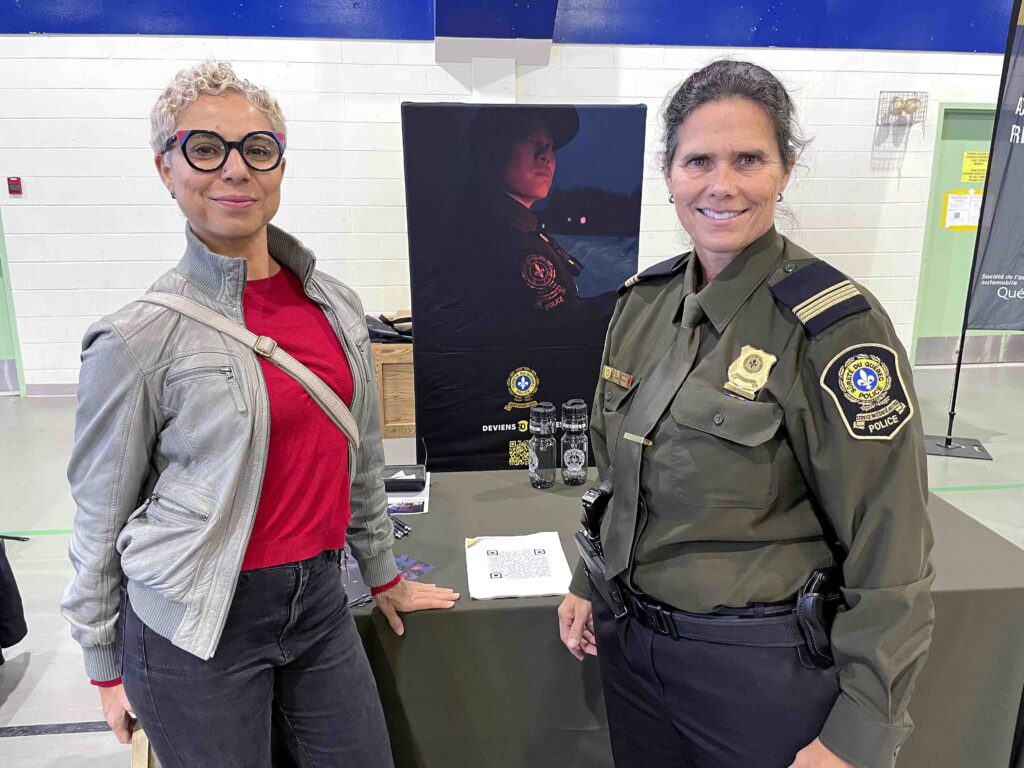Recruitment drive at Salaberry Armory drew security work applicants of all ages
The Canadian Armed Forces’ Charles Michel de Salaberry Armoury on Laval’s Le Carrefour Boulevard was teeming with police, military, firefighting, public safety, and even Canadian intelligence service officials on Thursday last week.
But they weren’t there responding to an emergency or a crisis.
Instead, they had gathered for one of the largest collective drives in recent memory for new recruits to fill a range of new openings that are becoming available with police and fire departments, as well as public safety agencies all over Quebec.

Job candidates sought
In addition to recruitment officers from the Laval Police Dept. and the Service de Police de la Ville de Montréal, there were police department recruiters from Quebec City and as far afield as Nunavik in northern Quebec.
From closer to home, police departments in suburban Repentigny just off the eastern tip of Montreal Island, and Terrebonne north of Laval, were also hunting for reliable job candidates.
The Sécurité du Québec were there, as were the Canadian Armed Forces, along with the SAAQ’s highway patrol unit, Contrôle routier. There were also officers from Protection de la faune, who enforce hunting, poaching and licensing regulations across the province’s forests and woodlands.

RCMP recruitment up
In case you hadn’t heard, the federal government is increasing police and public safety recruitment, with recent government investments and new measures announced in October to hire 1,000 new RCMP personnel and bolster border security.
The initiatives are in response, according to Ottawa, to a rising need for more officers to address escalating crime rates and national security concerns, while also including better cadet training allowances and a focus on diversifying recruitment. The federal government also recently announced beefed-up compensation packages for Canadian Armed Forces personnel.
Underlying all of this is the pressure exerted by U.S. president Donald Trump, who since the beginning of his second term last January has insisted Canada needs to beef up its border security, while also suggesting the country should rethink its priorities for national defence.
CBSA hiring blitz
On October 17, Prime Minister Mark Carney announced that the upcoming federal budget, which is being tabled on November 4, will include new measures to better secure Canada’s borders. Among them (according to a statement issued last week by the Prime Minister’s Office) the government will:
- Hire 1,000 new Canada Border Services Agency (CBSA) officers. These new officers will help crack down on the movement of stolen goods, illegal guns, and drugs, enforce import measures, and investigate unfair trade practices.
- Increase the CBSA’s recruit stipend for the first time since 2005, raising it from $125 to $525 per week, to help attract and retain the next generation of highly trained border officers.
- Amend the Public Service Superannuation Act to ensure CBSA officers and other frontline first responders receive benefits that reflect the weight of their responsibilities.

At the Salaberry Armoury last week, Canadian Security Intelligence Service representatives were anxious to spread the word they were looking for young new recruits. Some of the job offers might include entry-level electronic surveillance positions.
However, they were not so eager to have their picture taken while sitting at the CSIS booth. Everything’s a secret at CSIS, it seems. Even the identity of CSIS employment information officers. They agreed we could photograph their booth. As long as they stepped away.
CSIS’s lengthy screening process
While this type of work might appeal to some with a cloak-and-dagger streak, the downside is that the screening process alone before being hired by CSIS is 12 months, according to one of the two agency officials we spoke to. Still, she’s worked there for the past 30 years, suggesting that if you’re a good fit, CSIS might also be the place for you.
Surprisingly perhaps, recruiters for several of the agencies said they were looking for prospects from a fairly wide range of ages, from young adult (18 years), up to age 65.
A spokesperson for the Sûreté du Québec confirmed the provincial police force was willing to consider applicants up to retirement age. Mind you, this takes into consideration that they also hire people for mundane tasks such as clerical work that don’t necessarily require a background in law enforcement (although a security clearance might still be required).

Applicants of all ages
Among the applicants we spoke to was a 20-year-old Laval resident who was interested in finding work with the Correctional Service of Canada which operates several detention facilities in Laval’s Saint-Vincent-de-Paul district.
“My sister worked at a detention centre for youths and I thought I might be able to do the same,” he said.
Towards the other end of the age spectrum was a 49-year-old woman from Montreal. She was looking for a change of career after having worked most of her adult life as a professional dancer and choreographer.
“I’m in a transition and I’m looking for security work,” she said, noting that the physical nature of her previous calling seemed to line up with the rigours that security work often demands.



